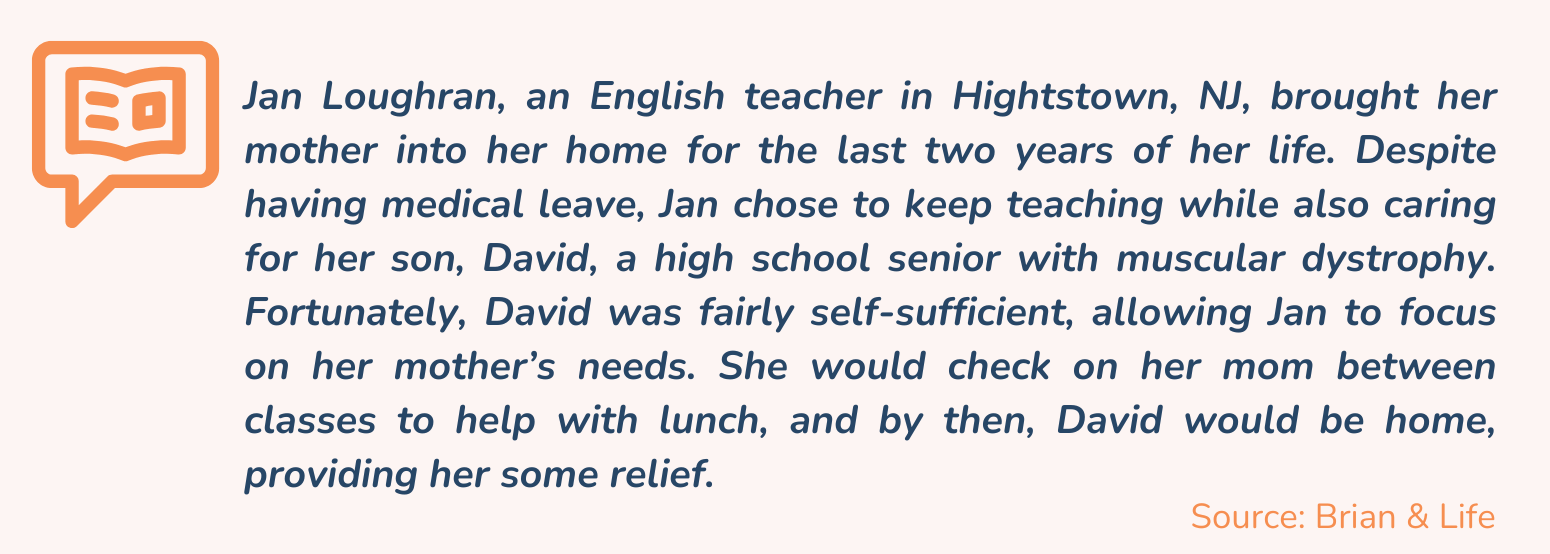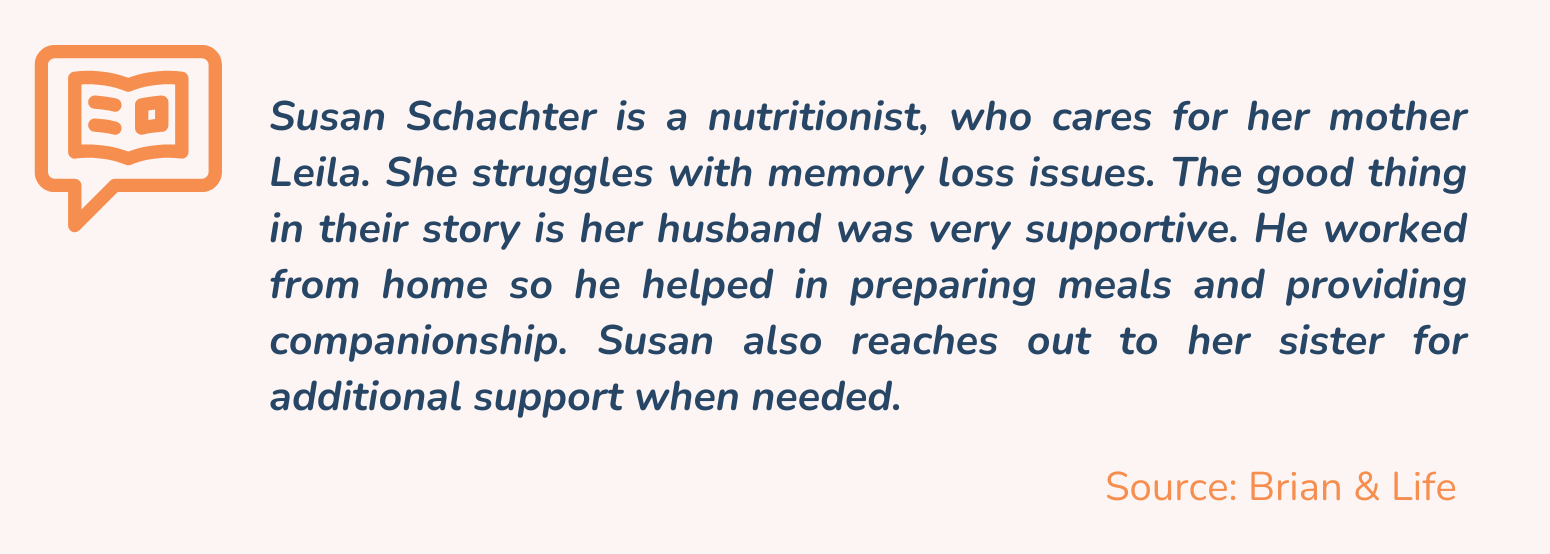Balance comes from understanding that it’s not about doing everything, but about focusing on what’s most important. Once you realize this, your mind can finally step out of fight-or-flight mode. But how do you take that first step?
Ways You Can Manage Your Work & Caregiving Duties:
By following these steps you can manage both roles effectively.
1. Learn the Art of Prioritizing:
If you are an anxious person like me, you will feel everything is urgent and equally important. To overcome this feeling, you can organize yourself by prioritizing your tasks. Generally, there are multiple time management and prioritizing techniques, but these two will suit you best.
Eisenhower Matrix: This technique allows you to prioritize your task by urgency and its importance. Using this, you can sort out what tasks need your attention right away and what can be done later. The structure of it will look something like this:
- Urgent/important
- Urgent/not important
- Not urgent/important
- Not urgent/not important
Time Blocking: According to this time management technique, you allocate time to different daily activities. This approach is best because it prevents you from overcommitting.
You can also use apps and digital resources to organize your tasks. Apps like Trello, Notion, or Microsoft To-Do help you stay focused on priorities and maintain clarity over what needs attention.
2. Practice the 80/20 Rule
Also known as the Pareto Principle, it suggests that 20% of your actions often result in 80% of the results. Identify the tasks that bring the most significant impact and prioritize them over minor ones.
Mastering prioritization takes practice, reflection, and sometimes flexibility. It’s not about doing everything, but focusing on what matters most.
3. Practice Self-care:
Self-care includes your physical and emotional well-being. You can achieve this, not by a miracle but by small efforts. This includes nutritious on-time meals and adequate sleep. Your social interaction matters a lot in your mental well-being, so try to keep in touch with your siblings and friends. You can plan out dinner, go on walks, or have a cup of coffee. These small steps are enough to reduce your stress and detach you from worries about work and caregiving duties.
4. Managing Emotional Burden:
We turn for help to those who can understand our situation better. In your case, joining a support group can give you a safe space where you can share your feelings without any hesitation, and without the fear of being judged.
You can find support here;
The Ontario Caregiver Organization: This organization offers support in two ways. 1:1 peer support and online support groups. In peer support, they match you with a trained peer mentor for confidential phone calls. Online support groups are led by former experienced caregivers and you can share your most important issues.
Caregiver’s mental health is most important, that’s why OCO offers the SCALE program. You can learn tips and tricks to manage stress here.
CHATS (Community & Home Assistance to Seniors) They focus on preventing burnout by improving your coping capacity. This program includes group sessions, personal consultations, and individual counseling
5. Talk to Your Employer:
Challenges you face while managing your career and caregiving will directly impact your work quality. Considering this, many companies have made policies on work-family balance that benefit both parties. This includes shared time, flexible hours, paid leave, and if your job permits then work-from-home options.
Liz O’Donnell published writer and owner of the blog “Working Daughter” says:
Check your employee handbook or talk to someone in human resources [HR] to see what options are available
She also recommends talking to your manager to see if you can come up with a schedule that suits you.
6. Set Boundaries:
Setting work boundaries is a powerful way to care for yourself. You will only achieve balance when you know what hours are for work and what time is for you. You can politely let people know your limits, whether that means saying no to extra shifts or letting them know you’re unavailable after a certain hour.
This goes for family members as well. Explain which tasks you can take on and where you need their help. Learning to say ‘no’ when needed keeps you from feeling overwhelmed. Being reliable often means others turn to you more, but boundaries give you the peace of mind to be at your best.
7. Hire a Professional Caregiver:
Even if you try to do everything alone, you will need an extra hand in this journey. For that, you can hire a professional caregiver to assist with daily tasks ( chores, meals, transportation, medication reminders, and companionship). Moreover, if your loved one needs specialized care, you can hire a qualified nurse according to your flexible hours.
At considracare, we understand the intricacy of this role. So, consider us your partners in the caregiving journey of your loved ones, and let us lend a hand in taking care of your loved one. Reach out to us at wecare@considracare.com and we will be happy to discuss the care needs of your aging parents and help you decide the best options.
Stories of People Like You:
Here, you’ll find examples of people like you who have effectively managed their careers, children, and loved ones. This section is meant to encourage you that, even when the situation seems difficult and you feel there’s no way out, there is always a path forward—you just have to find it.


FAQ’s
Q. Can I get financial support or leave benefits as a caregiver?
Q. How do you handle difficult situations related to caregiving?
Start by taking things one step at a time. Breaking down tough situations into smaller tasks helps them feel more manageable. Don’t be afraid to ask family or friends for help, and remember that community resources and support groups are there for you too.
Q. What options are available if I need temporary caregiving help?
Temporary support like respite care, adult day programs, or hiring in-home help can give you a much-needed break. Even reaching out to family or friends for short-term help can make a difference.
Q. What are some good self-care practices?
Self-care doesn’t have to be complicated—simple routines like a short walk, a cup of tea, or a few minutes of quiet can work wonders. Sleep, staying connected to friends, and joining support groups can also help keep you refreshed and recharged.






